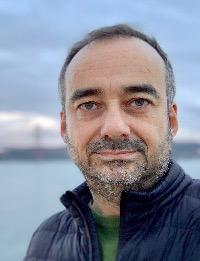Our main goal is to understand the mechanisms that promote the rise of cancer incidence with age and to understand the role telomeres plays on this phenomenon. We have developed novel vertebrate system to study this question - the zebrafish. Contrary to common mouse models, zebrafish has natural shorter telomeres that decline with age and limit cell proliferation and longevity.
Telomeres protect the ends of chromosomes from inappropriately being recognized as a double strand break and constant DNA erosion. As telomeres shorten throughout life, we lose this protection, leading to cell senescence and, possibly, genome instability.
We are testing an hypothesis that attempts to explain the apparent paradox of cancer arising at this stage of low cell proliferation. Due to telomere shortening, senescent cells accumulate with age. These cells secrete a very distinct set of signaling factors, proteases and other molecules (SASP). SASP promotes both malignant phenotypes in culture and tumor growth and invasiveness in vivo. The “seed-and-soil” theory proposes the importance of the microenvironment for carcinogenesis. With aging, senescent cells with short telomeres may provide the right soil for tumors to arise in a non-cell autonomous manner.















